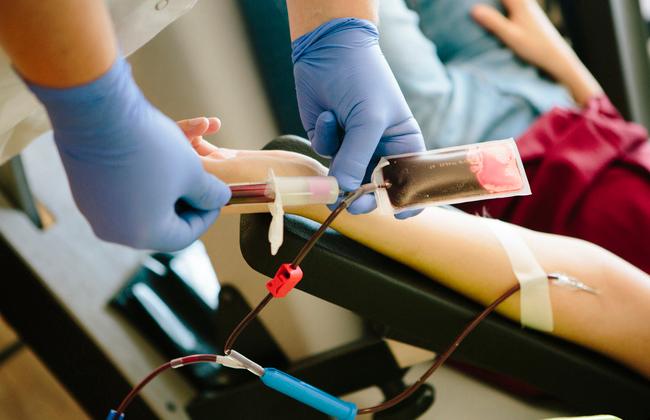Call for Blood Donations made by the PEI, Robert Koch Institute (RKI), and the Federal Centre for Health Education (BZgA) – Please observe the Appointments offered for Blood Donations!

Blood and plasma donations have decreased in the past few weeks in the context of the spreading of the new corona virus (SARS-CoV-2). For the supply of patients with blood transfusions and medicines derived from blood donations, it is very important that persons willing to do so continue to donate blood.
To contain SARS corona virus 2, drastic measures to reduce social contacts have been taken throughout Germany.
Blood donations, however, are among the vulnerable areas of health care and must be continued with the necessary arrangements despite the steps taken to contain the pandemic.
For this reason, all those who are feeling fit and in good health should continue to observe their blood and plasma donation appointments. The health care professions on site will routinely check the state of health of the donors. Such measures include measuring the body temperature and an infection-related donor interview. Persons who show signs of infection must not donate blood at that time. All other donor selection criteria laid down in the haemotherapy guideline on the infection safety of blood will continue to be observed.
There is currently no evidence that SARS-CoV-2 is transmissible by blood and that it may be transmitted by persons whose infection is undetected.
The standards of hygiene at blood donation centres assure that there is no increased risk of donors contracting SARS-Corv-2.
Continued blood donations are important for the supply of blood and blood products to patients, since blood components, in particular, have limited shelf life and can only be stored for a limited period of time. Platelets, for example, can be used only for four to five days. Medicines from blood donations are absolutely vital for many patients. A major part of blood products are used in the treatment of cancer patients. For this reason, PEI, together with RKI and BZgA appeals to the population to observe the blood donation dates offered and to make a contribution to the safety of patient care. An overview of the blood donation centres can be found on the website of the BZgA. Persons willing to donate blood should inform themselves at the blood donation services on all current donation dates and the prerequisites for donating blood.



